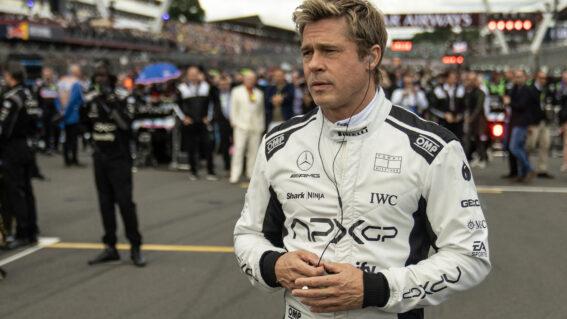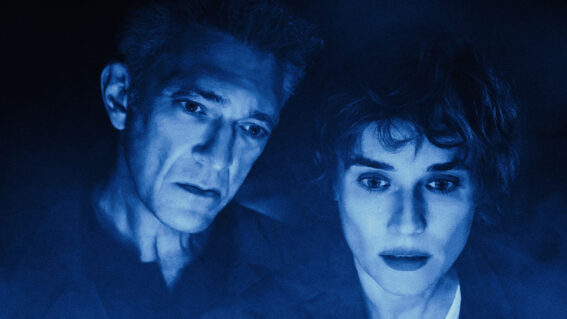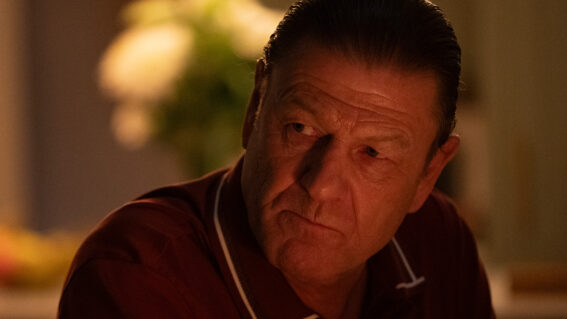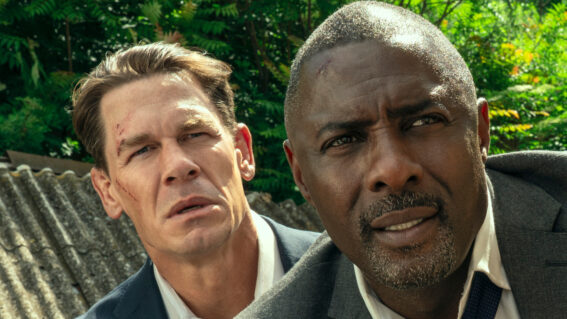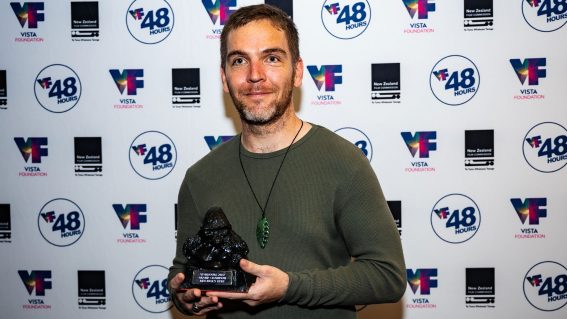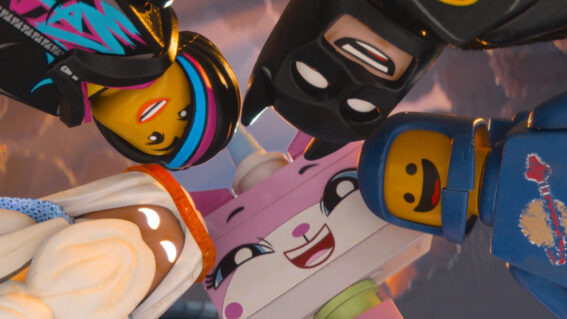James Gunn’s ridiculously entertaining Peacemaker is full of gleeful crassness and kick-ass rock
Peacemaker is a pretty heartfelt character study. With swearing, violence and sex.
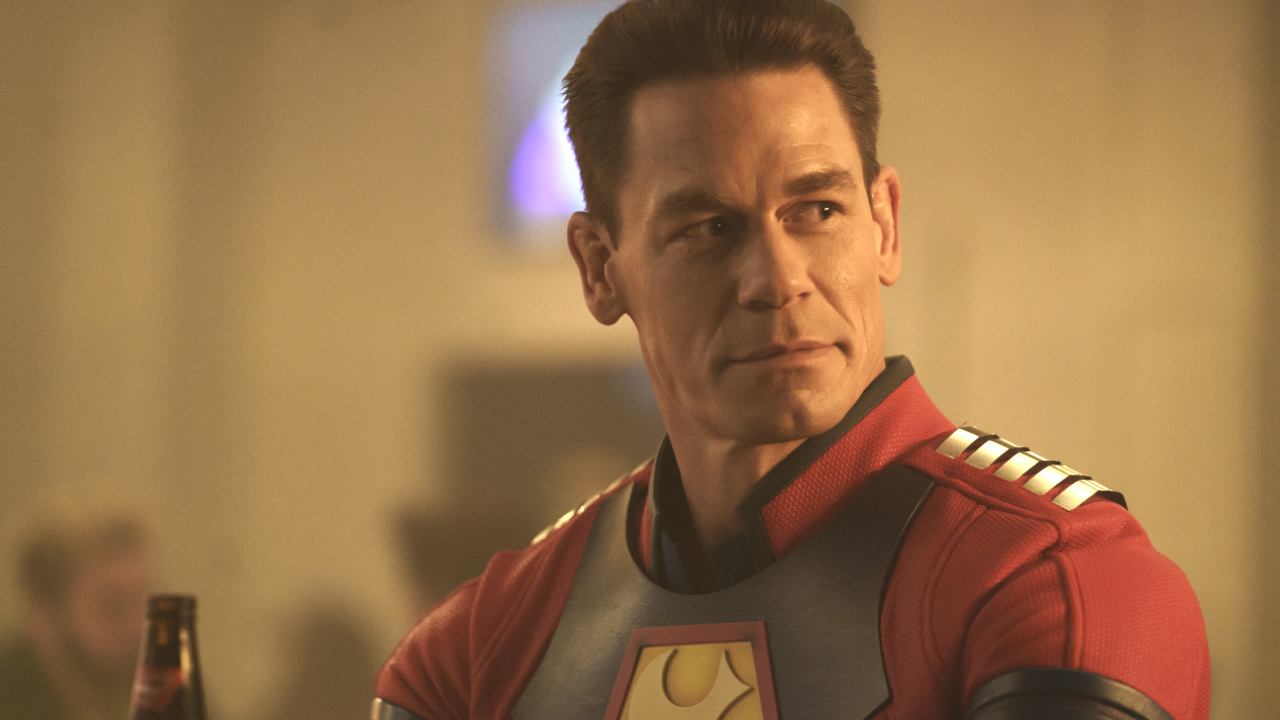
John Cena and his shiny helmet star in The Suicide Squad spin-off series Peacemaker – stream it on Neon from January 14. James Gunn has really, really been let off the chain here, writes Dominic Corry, and it’s a serious hoot to behold.
James Gunn flies his freak flag higher than ever and John Cena shows us just how layered an actor he can be in the ridiculously entertaining new live-action DC series Peacemaker.
While technically a spin-off of Gunn’s 2021 film The Suicide Squad, Peacemaker pretty much functions as a sequel to that unconventional blockbuster.
It picks up right after the events of that movie (the first episode even opens with a “Previously in The Suicide Squad” recap), and is obviously centered around John Cena’s titular peace-and-violence-loving blowhard, but also features TSS characters Harcourt (Jennifer Holland) and Economos (Steve Agee), and to a smaller extent, government superhero honcho Amanda Waller (Viola Davis).
We rejoin Peacemaker (real name: Christopher Smith) in the hospital where he has made a full recovery after [Spoiler warning for The Suicide Squad] seemingly being killed by Idris Elba’s Bloodsport for betraying the rest of the Squad for Waller. The post-credits sequence in The Suicide Squad revealed that efforts were being made to revive Peacemaker, and now that he’s all better, Waller is putting him back out on the street as a black ops asset, with Harcourt and Economos functioning as his handlers alongside the mysterious Clemson Murn (Chukwudi Iwuji), and rookie Leota (Danielle Brooks).
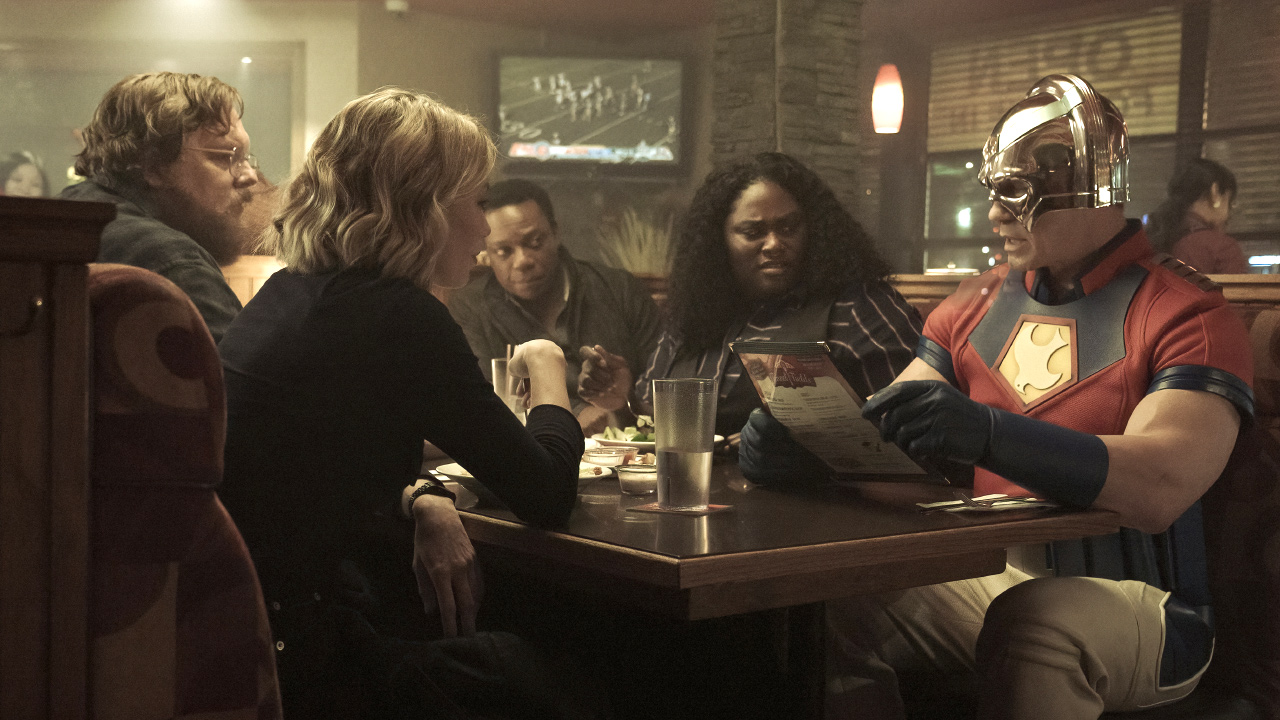
Also featuring prominently in the series are Smith’s repugnant father Auggie (Robert Patrick, somehow bringing something fresh to his performance despite decades of playing these kinds of toxic patriarchs) and fellow “superhero” Vigilante, aka Adrian Chase, played mostly under a Snake Eyes-esque full head mask with admirable physicality by British actor Freddie Stroma, who conveys a surprising degree of character without being able to use his face. And then there’s Smith’s pet eagle, Eagly, who must be experienced to be appreciated.
When James Gunn wrote and directed 2014’s smash hit Guardians of the Galaxy, he infused into it so much of his singular personality—previously evident in smaller films like Slither and Super—that it felt like Gunn had finally been let off the chain to do whatever his movie-loving heart desired. The sequel was also nice.
Then, when The Suicide Squad came out, it was such a crazy gonzo effort that it felt like Gunn had really been let off the chain. Well, Peacemaker takes it even further. Now Gunn has really, really been let off the chain. And it’s a serious hoot to behold.
Gunn’s specialty is undermining superhero storytelling tropes, then unironically embracing them a moment later, and there’s plenty of that sort of thing in Peacemaker, which is at its core a pretty heartfelt character study. With swearing, violence and sex. More than in The Suicide Squad. Like I said, Gunn is really, really off the chain here.
John Cena’s performance here is something quite lovely. After starting out as a bland action beefcake, Cena became more interesting as an actor when he began to embrace his sillier side. He didn’t get to do any of that in F9, but Gunn had him generating most of the laughs in TSS, and again, he takes it even further here.
There’s a sadness to Christopher Smith that makes Peacemaker an unexpectedly affecting series. The road back from his more outwardly villainous acts in TSS provides a redemptive arc that is very easy to get on board with. By any superhero standards, this guy is a loser. And James Gunn loves losers.
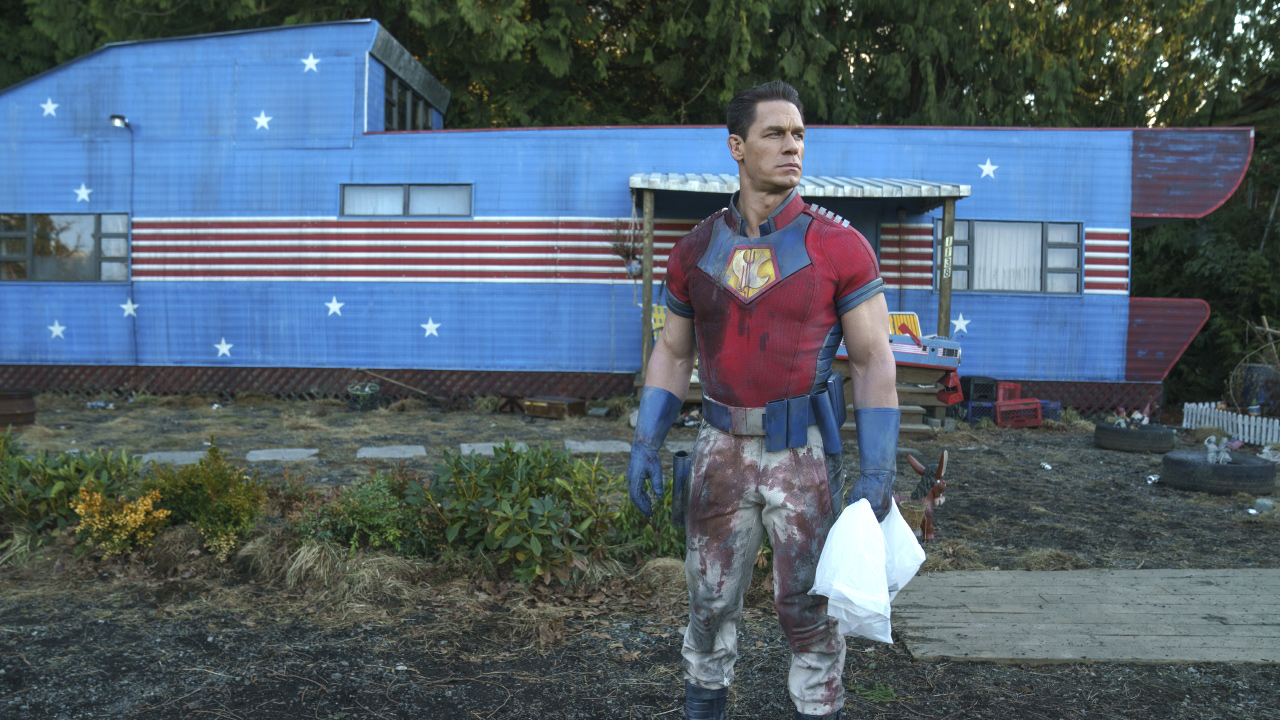
Peacemaker is constantly over-explaining to random people that he actually is a superhero. It never gets old. When someone remarks “Oh you’re that racist superhero,” Smith proclaims that he kills white people too, and resolves to have Caucasians make up a higher percentage of his victims.
During another such scene, Smith gets so flustered by someone going on about how great Aquaman is, he implies that the DC hero has Troy McClure-esque tendencies. There’s a lot of this sort of throwaway DC humour, and Gunn is fantastic at it. Trust him to provide the DECU’s first canonical mention of Bat-Mite.
But all this aside, Peacemaker is worth watching solely for its magnificent opening credits, in which the entire cast (like, everybody, even characters who don’t show up until several episodes in) performs an amazing choreographed dance routine to Do You Wanna Taste It from throwback Norwegian glam metal band Wig Wam. It’s pretty freaking fantastic, and not the only time in the series we see Cena show off his dance moves.
As you might expect, the music in this series is beyond, with Gunn’s long-evident affection for ’80s rock (Cinderella, Hanoi Rocks, Faster Pussycat here) transposed over to Peacemaker himself, and forming a recurring thread in the series. This also allows for a magnificently savage Foster the People diss.
Gunn—who alone wrote all eight episodes of the series, and directed most of them—once again shows here that there remain plenty of untrod paths in superhero storytelling, even if, in this case, they’re paved with gleeful, winning crassness. And lots of kick-ass rock.
Arguably the first proper adult-oriented live-action superhero series based on characters from either of the “big two”, Peacemaker is mountains more fun than it has any right to be.
Peace out.









